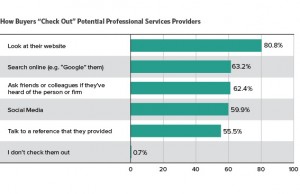By Talib Visram
Maternal mortality has been on the rise in the U.S. at the same time that childcare, healthcare, and housing costs are rising. A new initiative in Denver hopes to help combat those issues by improving the mental and physical health outcomes of mothers-to-be and their newborns.
Pilots for guaranteed income—regular cash payments as a supplemental form of assistance—have greatly increased. Between 2020 and 2022, more than 48 pilots were created, usually for low-income individuals, and at times targeted to particular populations, from formerly incarcerated people, to artists, to new fathers.
While most guaranteed income pilots are financed by governments or nonprofits, a new Denver-based program is the first to be funded entirely by a private company.
This week, 20 participants received their first of 15 monthly checks of $750 via debit card. The recipients are all pregnant women in the Denver area, in their second or third trimesters, and experiencing economic hardship.
The program was the brainchild of Katherine Gold, CEO of Goldbug, an infant clothing distributor in Denver. Gold herself was a single mother while raising her son and running her business—and it was difficult, even though, as she says, she had the resources to do so. “It was overwhelming,” says Gold. “I couldn’t imagine, without that privilege, how difficult [it would be].”
Goldbug, which was founded in 1968 by Gold’s father and counts about 60 employees, distributes its clothing under different brands to mainstream stores. Gold wanted to support her customers, especially after reading about the spike in maternal mortality rates in the U.S. “We’re not serving Bergdorf Goodman here,” she says. “We’re serving Walmart and Target customers. What is really going to make a difference in their life?”
She worked with the nonprofit Impact Charitable to design and implement the guaranteed income program. “I make children’s products,” Gold says. “You want to have people around you who actually know what they’re doing.” Impact Charitable has run a dozen direct cash assistance programs, having distributed $38 million to 25,000 people.
A major focus of the pilot is to include underserved groups: 70% of the recipients are women of color, and the cohort is half urban and half rural. Most guaranteed income programs tend to focus on urban participants, even though rural residents often can find it harder to access healthcare.
Supporting pregnant women is not a new pursuit for Goldbug, which donates to a local Denver doula program and provides meals to women with high-risk pregnancies via a Colorado charity. Along with the new pilot, Goldbug spends about 8% of profits on these projects.
Ashley Hudgens, 34, is one of the participants in downtown Denver. She had decided to take time off of work to alleviate stress, and then found out she was pregnant. “I could totally use the help,” she says. “I’m struggling.”
Hudgens received her first check this week. “$750 is not a huge amount,” she says, “but it’s good enough to get your feet on the ground.” She’s using the cash to settle bills, buy clothes and supplies for her first son, who is 13, and pay for Ubers to bring him safely to and from school.
She likes that it’s recurring and predictable, and that she can determine how to use it, which isn’t often the case with government benefits. “It’s really a blessing knowing that you get this money, and you don’t have to spend it [only] on this, that, and the third.”
Though this is the first in Colorado, there have been multiple guaranteed income programs for pregnant women in recent years, including one in New York, and another in San Francisco for Black and Pacific Islander women.
They’re helpful because of their “two-gen approach,” says Jourdan McGinn, director of economic mobility at Impact Charitable. “By investing in one individual, you can not only change the trajectory of the mom, but also fundamentally change the trajectory of their child.”
New research from Columbia University has suggested that pregnancy represents a “critical window” of funding, which can help women and their children afford better healthcare, nutrition, housing, and goods, relieving some financial stress. Past cash transfer programs have helped improve both mental and physical health; initiatives in Spain and Uruguay led to reductions in low-birth weights.
But the private funding here is new. While it’s easy to be skeptical of the private sector and its motives, McGinn says it can fill financing gaps left by often-scant public funds.
What’s more, Gold says, “the private sector can move faster without all the red tape.” She says businesses can afford to be more entrepreneurial, in trying different things, and then reshaping them quickly if they turn out to be lacking.
Still, this is a small pilot. The goal isn’t necessarily to expand it, but rather to learn from it—via a policy team that will be evaluating the data. That team, which includes experts from Impact Charitable, the Women’s Foundation, and the Colorado Health Foundation, meets monthly to review progress.
But long term, the objective is to contribute to the growing national evidence of guaranteed income’s efficacy and influence governments across the country to do the work. “I don’t think that the private sector can take it all on,” Gold says. “If we can ignite the conversation, and learn and iterate, that’s what’s really important. And I think the private sector can do that better than the public.”
(10)
Report Post






